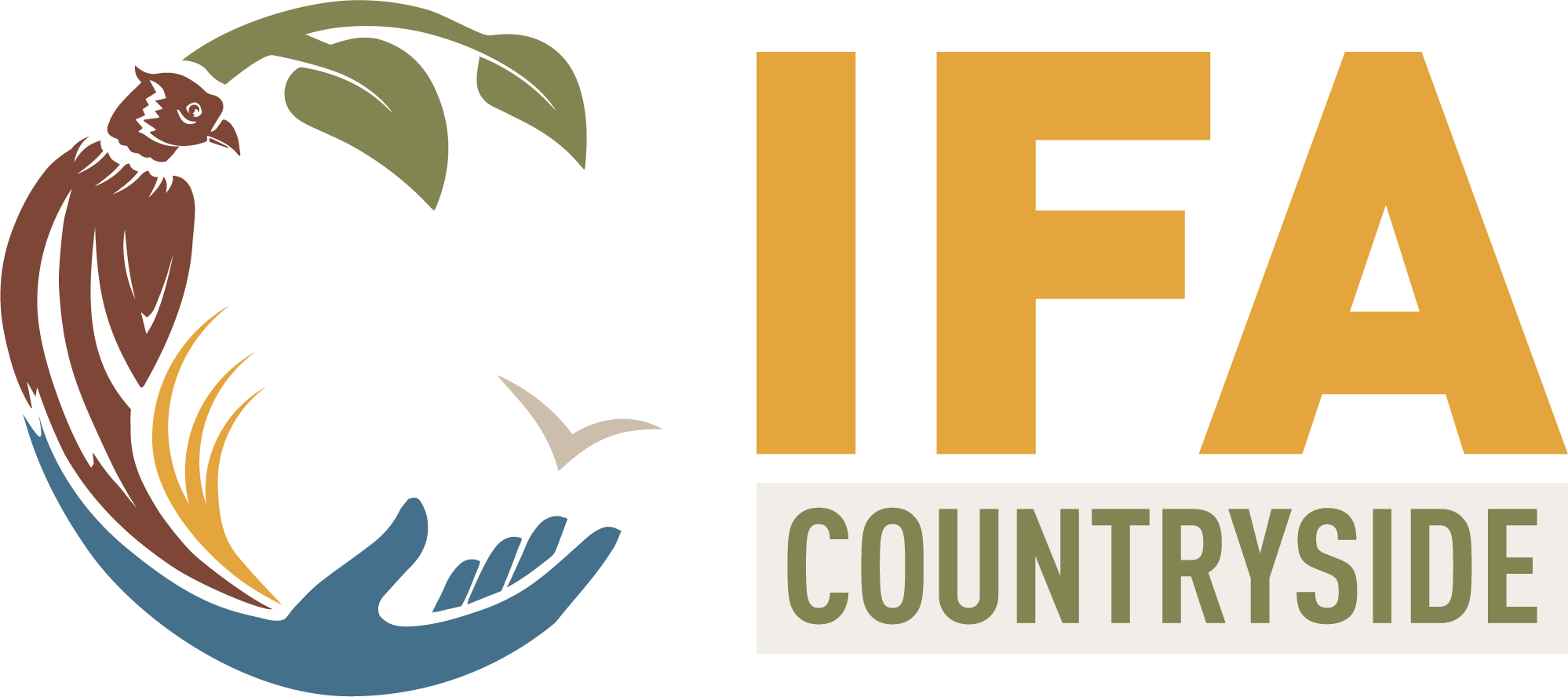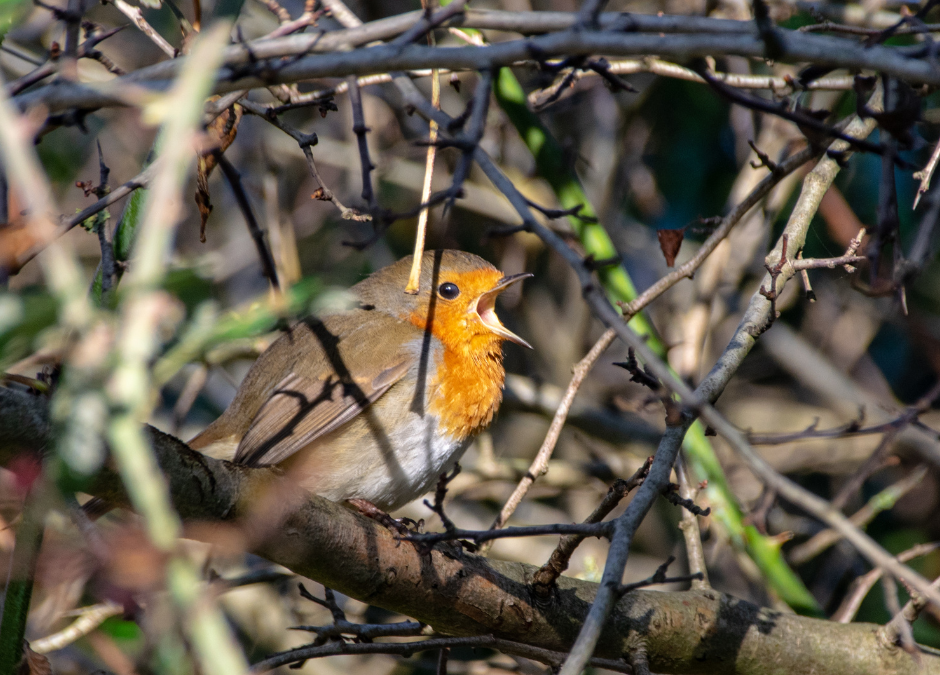- Vegetation, such as hedgerows and scrub, provides a home and a vital habitat for birds and wildlife, especially during breeding and nesting season.
- Legislation prohibits damage to vegetation from March 1st to August 31st, with limited exemptions.
- National Parks and Wildlife Service is stepping up its approach to fire prevention and detection, with increased capacity to monitor and respond to incidents.
Minister for Nature, Heritage and Electoral Reform Malcolm Noonan T.D has called on the public to protect nature as Spring begins. Damage to hedgerows and illegal and uncontrolled fires are some of the activities that can cause harm to nature and wildlife at the onset of the nesting and breeding season.
Minister Noonan said:
“Our relatively low cover of native woodland means that our hedgerows are critical infrastructure for nature. These habitats provide food to eat, places to nest, and even corridors for many forms of wildlife to move through the landscape, in particular our nesting birds. Untrimmed, thorny hedgerows are favoured by birds as they provide cover from predators. We love to hear the sounds of our birds as they are a sign of nature waking up. So let’s look after our them by leaving our hedgerows intact when we can, to provide them with the safety and shelter they need.”
Legislation prohibits the cutting, grubbing, burning or other destruction of “vegetation growing in any hedge or ditch” between 1st March and 31st August. This is to protect bird life during the nesting season, to help prevent forest fires, to protect vegetation and wildlife habitats at an important time for breeding and growth and to provide food for animals and birds. There are very limited exemptions, for example, for health and safety reasons. There is no exemption for the burning of vegetation during this period. Breaches of Section 40 of the Wildlife Act constitute a wildlife crime and will result in prosecution. In addition to the prosecution, the breach will be cross reported to the Department of Agriculture, Food and the Marine and a sanction may be applied under Conditionality to the farmer(s) area based payments.
Minister Noonan also called on the public to avoid lighting fires in nature settings. In recent years, illegal and uncontrolled fires have caused significant damage to protected areas and National Parks, notably Killarney National Park and Wicklow Mountains National Park.
Minister Noonan continued:
“These illegal fires put communities, public and private properties at risk, they put our emergency services under pressure, and can cause irreparable damage to our natural heritage. The NPWS is ready to respond in the months ahead. Aerial surveillance is a highly effective tool to prevent the outbreak of fire in our National Parks and Nature Reserves, and our ’eyes in the sky’ patrols will be busy – day and night – over the coming weeks and months. Initially, we will concentrate mainly on the west coast and south to Cork and Kerry, with close surveillance on Killarney National Park and our Nature Reserves in the West and South. We will also cover the Slieve Blooms and the Wicklow and Dublin Mountains. NPWS staff will continue to work with the Gardaí and Fire services and will run aerial surveillance, alongside ground patrols, with increasing regularity over the coming months right across the country, and across our network of National Parks and Nature Reserves.”
Niall Ó Donnchú, Director General of the NPWS added:
“Prevention remains key to our approach. We are now using nationwide air cover in early detection and to assist us in the prosecution of illegal burning. We have strengthened our approach to wildlife crime, formalised our co-operation with An Garda Siochána, and enhanced capacity for fire prevention through planning, specialist training, additional equipment, staff on the ground, public vigilance, volunteering and fire mapping data. This means that we are ready to respond quickly in the event of fire in our Parks and Nature Reserves, and our investigative capacity is significantly enhanced.
Minister Noonan concluded by calling on the public to remain vigilant and help protect nature.
“Members of the public are our first responders, and can play their part in protecting nature by reporting any incidents or suspicious activity to the NPWS or An Garda Síochána. Where there evidence of offences is found, action will be taken and appropriate enforcement under wildlife legislation will be vigorously pursued.”
Incidents can be reported to [email protected] or your local NPWS office.
Ends
Notes to editors
The Wildlife Act 1976: Section 40 of the Act prohibits the cutting, grubbing, burning or other destruction of vegetation growing on “any land not then cultivated” between 1st March and 31st August annually.
The legislation allows for some exemptions. For businesses, landowners and the general public the most notable of these exemptions are:
- The destruction, in the ordinary course of agriculture or forestry, of any vegetation growing on or in any hedge or ditch. In the Act, “agriculture” is defined as including horticulture. Since horticulture includes gardening, the summertime trimming of hedges in the ordinary course of gardening falls under this exemption;
- The clearance of vegetation in the course of road or other construction works or in the development or preparation of sites on which any building or other structure is intended to be provided;
- The felling, cutting, lopping, trimming or removal of a tree, shrub, hedge or other vegetation pursuant to section 70 of the Roads Act 1993.
According to Section 22 of the Wildlife Act it is also a criminal offence to wilfully destroy, injure, or mutilate the eggs or nest of a wild bird or to willfully disturb a wild bird on or near a nest containing eggs or un-flown young birds at any time of the year.
The Wildlife Act 1976 is available here

